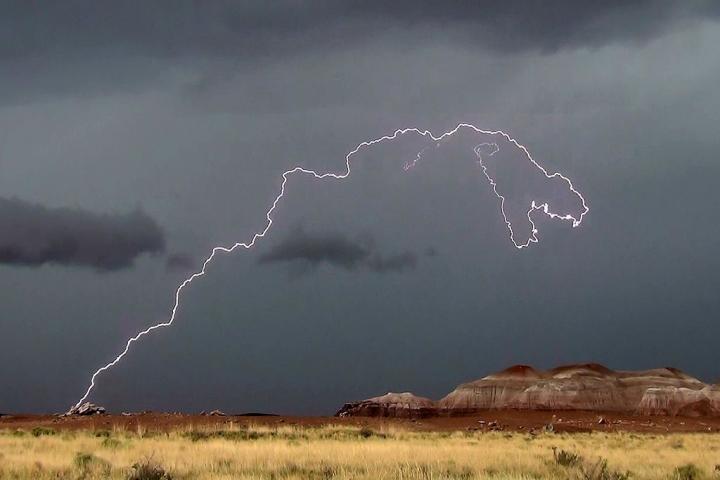
ADVERTISEMENT
my dad told me two old thoughts on rain fall but I can not remember the answer. What does each one mean. One rain drops hitting a puddle and creating rings. Two rain drops hitting a puddle and creating bubbles on the surface of the puddle. Thank You , Mark
I had a boss from the north that could smell snow, kinda of how much & bad. One day at work
She said I smell snow. We all laughed, me not so hard (I can smell rain). As we were leaving that day
she says (this was on a Thursday) I'll see you all Monday. We ask why. She says," I smell snow, & it's going to be
deep enough & cold. It'll last the week-end" It did snow that night, but it was Tuesday before we went back
to work, ice covered roads!
My daughter and I are severely affected by the changes in Barometric pressure. In the middle of a pleasant sunny day, we (separate even by county) suddenly feel incredibly tired, almost a drunken sleepiness that overpowers and makes getting through the rest of the day difficult at best. The strangest thing is that once the approaching weather has arrived, we are no longer affected any more than the next person, it is only the approach that is almost debilitating.
Does anyone else feel this way?
Yes, I can smell the rain coming, and sometimes the snow, too. I could always do that. I knew that if the scent on the wind was sharp and wet, it meant rain in the summer and snow in the fall and winter, and maybe in the spring, too.
In addition, I get some really nasty sinus headaches when the front edge of a pressure front goes through my area. It feels like my face is being squeezed, and lasts about an hour. It's extremely unpleasant but there is no remedy for it because it is caused by a change in barometric pressure. Just have to sit it out.
I have a lousy sense of smell, so I cannot smell rain coming. I wish I could because I love the smell of dirt after it has rained. I occasionally get migraine headaches when there is a drop in barometric pressure. Thank goodness for migraine medicine!
Odd phenomenon but since smelled the rain when working as a lifeguard at 16. My 1st job-I didnt need to see clouds. I could smell the rain long before it his our area. When it got within a few miles, you can see it when looking in light--no sunlight. Normally the conditions when its cloudy.
2 big hints there. Smells wet and eventually, there is a dark mass in the sky --rains coming.
My Mom used to yell at we kids,"Come and help me get the wash off the line. I heard a rain crow". She was right every time. This was in the 1940's.
well i cant smell weather but i can feel it in my knees and neck vertebra when its gonna rain.I always tell everyone at work when i feel barometer changes in those bones i mentioned
Lovely post. Makes me want to go outside right now and smell the weather! Some of my strongest memories are the smells of the weather or season as I walked through our property and a large parkland to school. When I smell those smells now it takes me right back. Nothing better. I love to hear someone say "it smells like rain" or "It's going to snow. Can you smell it?!" Of course, I say, "Yes!"
I love Evelyn Garriss forecast.she goes into such detail. cant get that on t.v. very informative.looking forward to her next blog.












